We make a prosperous world with valuable products.
Limestone is the seed that made the steel industry as we know it today. The only thing that could eliminate impurities from steel to make a stronger and more durable material was the power of limestone. Limestone added to molten metal in a heated shaft furnace removes impurities from iron ore, creating high-purity steel. At the foundation of the prosperous world created by steel and cement, there is limestone. In addition, limestone is an environmentally friendly material which is used to remove fossil-fuel-based pollutants, the main causes of global warming, and it is also used to improve water quality.
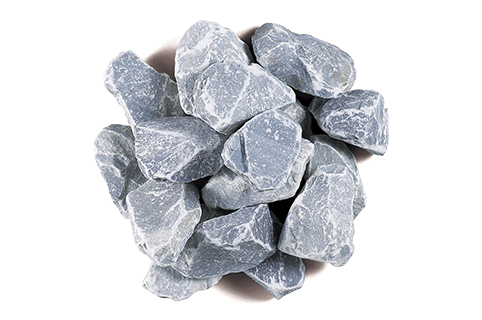
Limestone
A mineral mainly composed of calcium carbonate, it is commonly referred as limestone. Chemically, it is an aqueous rock whose main component is CaCO3, and it is the most widely used ingredient for CaO. It is formed when materials rich in calcium carbonate such as foraminifers, shells, coral, and stromatolites are fossilized. Another type of limestone is formed with the precipitation of calcium carbonate created as a result of the reaction between carbonic acid produced by bacteria in the seawater and the salts in calcium.

Quicklime
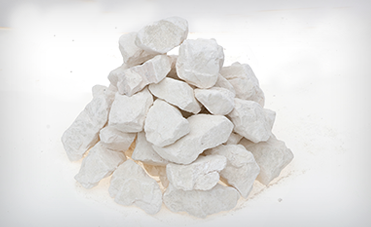
Calcium oxide [CaO] is created as a result of decarboxylation of limestone, and is commonly called quicklime. It can be created by pyrolyzing limestone at a high temperature between 900℃ and 1,200℃ depending on the intended use. The largest consumption of quicklime takes place in steel manufacturing, where it is used as the fusing agent for the slag process in manufacturing steel. It is used to remove phosphorus and sulfur to increase the quality of the steel.
Slaked lime
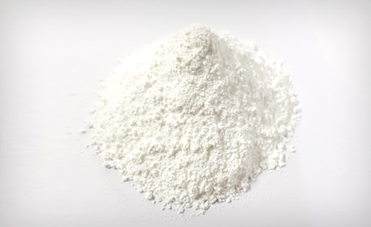
This substance is achieved as a result of the hydration reaction which involves adding water to calcium oxide [CaO]. It refers to calcium hydroxide [Ca(OH)2] formed with heat emission, and is commonly called slaked lime or hydrated lime. It is used for different purposes depending on the level of CaO content and fineness. The main areas of use include interior/exterior construction material, wastewater processing, and agriculture.
Calcium Carbonate
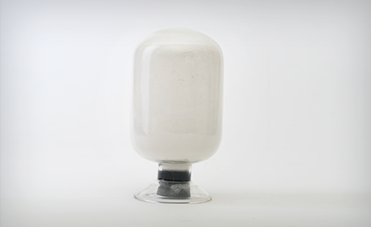
Calcium carbonate is pulverized limestone. In general, it is divided into normal calcium carbonate and ground calcium carbonate, depending on the size of the grain and whiteness. Normal calcium carbonate is the end product of simple comminution, and is used for flue-gas Desulphurization or as an asphalt filler. Heavy calcium carbonate is produced through fine grinding and sorting, and is widely used as a filler for industrial goods such as paper and rubber.
 Raw ingredient for cement
Raw ingredient for cement
Limestone is the most important raw ingredient for cement and concrete, which are essential materials in the construction industry.
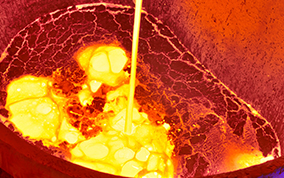 Steel and iron manufacture
Steel and iron manufacture
Limestone and dolomite are essential materials for steel and iron manufacture. They are used to protect firebricks and to remove toxic substances during steel and iron manufacture.
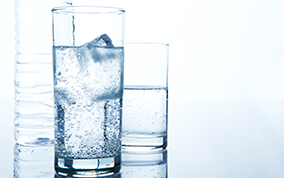 Raw ingredients for glass
Raw ingredients for glass
Glass, of which limestone and dolomite are the main ingredients, is used in various areas including structural glass, glass bottles, glass tableware, and state-of-the-art LCD products.
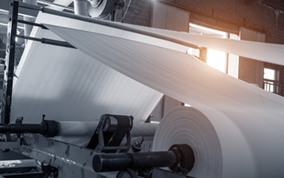 Paper manufacture
Paper manufacture
Ground calcium carbonate and precipitated calcium carbonate produced by processing limestone are used as a filler that increases the durability of paper, or to coat the surface of paper to create a gloss.
 Chemical and industrial manufacture
Chemical and industrial manufacture
Limestone is an essential ingredient in producing soda ash, which is used to manufacture glass, soap, detergent, dye, aromatics, medical substances, and so on. Ground calcium carbonate and precipitated calcium carbonate, which are both processed limestone, are essential ingredients for making plastic products, rubber products, paint/varnish, and others.
 Medical
Medical
Calcium compounds produced from limestone are important raw materials in the medical materials field. They are used for coating the surface or for forming shapes of medicine and drugs.
 Food
Food
Calcium compounds including limestone are used in the food industry in various ways as alkali or calcium additives for sausage, bread, chewing gum, biscuits, juice, and more.
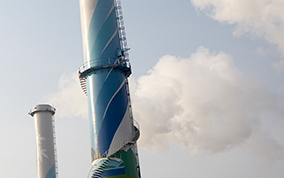 Purification of exhaust and combustion gases
Purification of exhaust and combustion gases
Exhaust gases emitted by various factories and thermal power plants contain substances toxic to the human body, and limestone products are essential in removal of the gases.
 Fertilizer and soil conditioner
Fertilizer and soil conditioner
More than 90% of soil in Korea is acidic, and granular limestone magnesium fertilizers produced with limestone and dolomite are essential in improvement of the acidic soil.
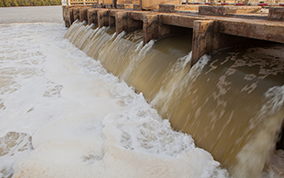 Drinking water and sewage
Drinking water and sewage
Various types of limestone and dolomite products are also used to process acidic wastewater discharged by factories, as well as in other areas of water quality improvement.
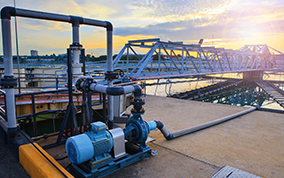 industry waste processing
industry waste processing
Food waste and livestock industry waste undergo the process of moisture adjustment and sterilization using products based on limestone and dolomite to be recycled as agricultural fertilizers.
 Animal feed
Animal feed
Limestone and dolomite are supplied as raw ingredients for animal feed as a source of calcium to raise healthy livestock.